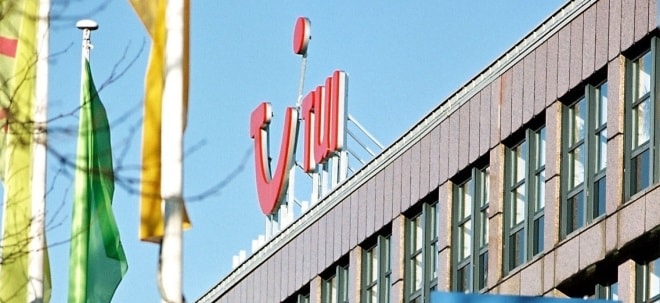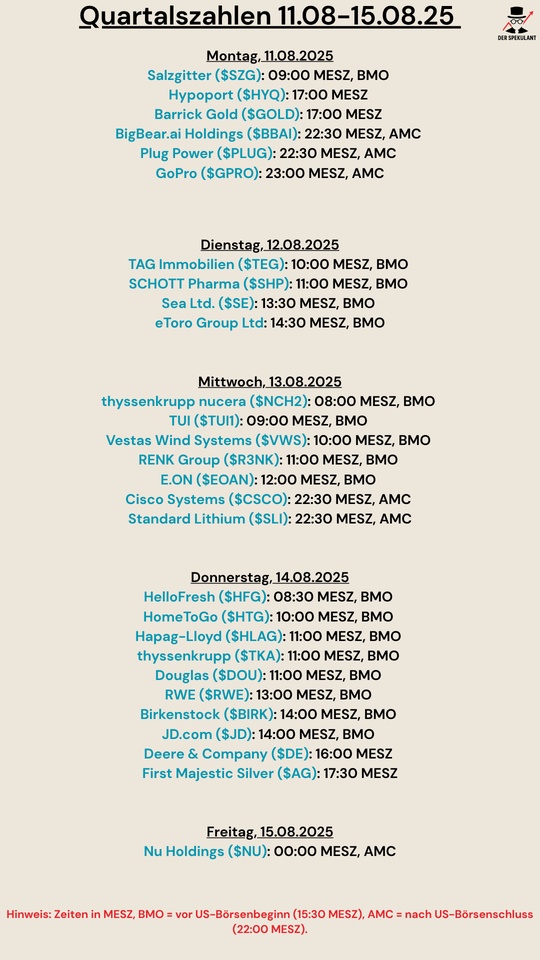$TUI1 (+0,05 %)
TUI increased its revenue and earnings more strongly than expected in the third quarter of the financial year 2024/25.
The heatwaves in the Mediterranean and the conflict in the Middle East are slowing down the travel group's summer business $TUI1 (+0,05 %) somewhat, however. While the Group's own hotels and cruise ships announced record results, bookings for the summer season in the tour operator business are two percent lower than in the previous year, as TUI announced in Hanover on Wednesday. In Germany, the shortfall was even five percent, explained CEO Sebastian Ebel in a video conference with journalists. Nevertheless, the manager had slightly raised his profit forecast on Tuesday.
The Group did not necessarily have to take "the last customer" with it, from whom it then earned nothing, said Ebel. By the beginning of August, TUI had sold a total of 86 percent of the package tours offered for the summer. Prices were on average three percent higher than in the previous year, and the tour operator division brought in more than half of the guests for the Group's own hotel brands such as Riu, TUI Blue and Robinson Club.
The booking figures and other details on the third quarter were initially well received on the stock market on Wednesday: The TUI share gained via XETRA shortly after the start of trading and was thus at times one of the strongest stocks in the MDAX, the index of medium-sized stocks. However, the mood then changed and the TUI share temporarily lost 0.99 percent to 7.82 euros.
Meanwhile, TUI is struggling with the fact that many customers are booking their trips quite late and are also looking at the weather situation and the development of conflicts such as in the Gaza Strip. The tour operator is also trying to counteract this with discount vouchers. On the other hand, the recent heatwaves could lead to more customers opting for trips in September or October, said Ebel.
In the third financial quarter to the end of June, TUI counted 5.9 million guests, slightly fewer than in the same period in 2019, the year before the coronavirus pandemic. The figure was 6 million, according to a spokeswoman.
Meanwhile, TUI achieved a turnover of 6.2 billion euros this time, seven percent more than a year earlier. Operating profit adjusted for special items (underlying EBIT) rose by 38 per cent to just under 321 million euros and reached its highest level since the merger of the Group with its former tour operator subsidiary TUI Travel in 2014. A surplus of 183 million euros was attributable to shareholders after only 52 million in the same period last year.
For the current financial year until the end of September, Ebel now only expects currency-adjusted sales growth of 5 percent, having previously forecast up to 10 percent. However, adjusted operating profit is expected to grow by 9 to 11 percent. The Management Board had previously targeted 7 to 10 percent. The improved performance will be driven above all by the Group's own hotels and the 17 cruise ships operated by TUI Cruises, Hapag-Lloyd Cruises and Marella Cruises.
Meanwhile, TUI's top management is continuing to work on putting the Group back on a better financial footing following its rescue by the state during the coronavirus crisis. By the end of June, debt had fallen by 0.2 billion to 1.9 billion euros, and CFO Mathias Kiep intends to use the 250 million euros from a recently placed bond to take ownership of previously leased aircraft.
Until now, the aircraft in the TUI fleet have all been leased. The takeover will give the Group more freedom in deciding when to strengthen its fleet or get rid of older aircraft. "You buy aircraft when the euro is strong and sell them when the euro is weak," added CEO Ebel. This results in "considerable earnings potential".
Ebel was now also more optimistic that the crisis-ridden US aircraft manufacturer Boeing will finally deliver the promised new aircraft for TUI in the fall and next spring after severe delays. The manufacturer had recently seen a significant increase in deliveries.
The problems are causing problems for airlines all over the world, especially as the world's largest aircraft manufacturer Airbus from Europe is fully booked into the next decade in the aircraft segment with the highest sales - medium-haul jets.
https://www.finanzen.net/nachricht/aktien/urlaubserlebnisse-boomen-tui-aktie-dreht-dennoch-ins-minus-tui-uebertrifft-mit-umsatz-und-ergebnisplus-die-erwartungen-14722347



















